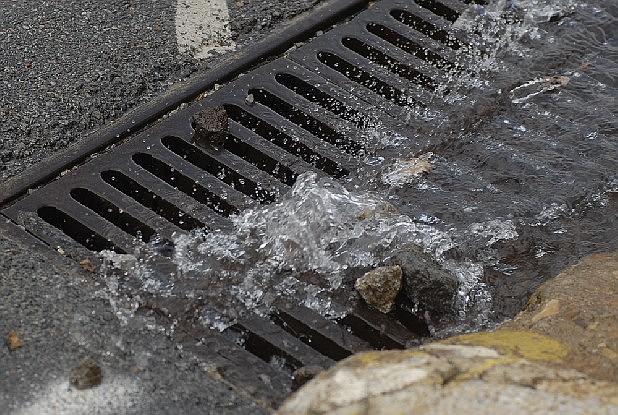The Tennessee Clean Water Network said its study shows water quality enforcement orders by the Tennessee Department of Environment and Conservation against water polluters dropped from 219 in 2007 to just 15 during 2015.
That's a 93 percent drop the group warned. And it impacts protection of state waterways "that are the source of drinking water for millions of Tennesseans."
"The question is why?" Renee Hoyos, executive director of the group, said in a news release Tuesday as she raised concerns about operations in TDEC's Division of Water Resources.
She said federal Environmental Protection Agency records show "there are 255 permittees in Tennessee in violation of their permits. And out of that number, TDEC only issued 15 enforcement orders to clean up the rivers and lakes. That is unacceptable."
But TDEC Commissioner Bob Martineau said the environmental group is looking solely at penalties collected as enforcement action.
"There's an array of what we take as enforcement actions, from the reading of the report they send in with what your discharge levels, to inspections, to all the way up to what we call formal enforcement actions that are orders or civil judicial actions," he said. "Those are all tools in the tool box.
"If we do an inspection and identify a problem and within a few days the source comes back into compliance, that's our goal, it's compliance," the commissioner said. "Enforcement actions usually mean that somebody hasn't, after reasonable efforts to try to comply, they just haven't gotten their facilities corrected, then we take a more formal action with what they call enforcement action."
Asked if critics might call that regulation light, Martineau said, "Again, it's a matter of perspective. We get a lot of people telling us that every time we issue a penalty we're over-enforcing and we're putting people out of business. Our goal is compliance."
He said the state's compliance rates "are extremely high, higher than they've ever been."
In the group's news release, Hoyos said, "DWR has argued that it uses other means to ensure compliance, but it is unclear what those are. The other regulatory action it can take against an offender is a Notice of Violation, which carries no monetary penalties or repercussion for non-compliance.
"But," she said, "even NOVs have decreased by 50 percent since 2007."
Hoyos said there have been drinking water crises all over the country in recent years.
"Many of these have resulted from lack of oversight from the state," she said. "God forbid something like that should happen here in Tennessee. When the state is managing the regulated community diligently, drinking water mishaps are less likely to happen."
She said in the past TDEC has blamed lack of enforcement actions in part on staffing limitations. But, she said, "the law requires TDEC to take enforcement action and not hide behind excuses."
Moreover, Hoyos said, the group's analysis shows figures also show enforcement actions "significantly down" in TDEC's Air Pollution, Solid Waste and Underground Storage Tanks divisions.
Martineau said the divisions take similar approaches to enforcement.
Contact Andy Sher at asher@timesfreepress.com, 615-255-0550 or follow via Twitter at @AndySher1.

